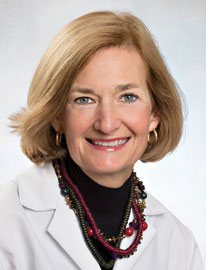Novel SEQaBOO Study of Newborn Hearing Loss Foretells Role for Obstetricians in Genomic Medicine
 As genetic and genomic sequencing become incorporated into newborn screening for hearing loss, patients may look to obstetricians for guidance on genetic testing decisions.
As genetic and genomic sequencing become incorporated into newborn screening for hearing loss, patients may look to obstetricians for guidance on genetic testing decisions.
Auditory screening of newborns, mandated by most states in recent decades, now reaches an estimated 98 percent of newborns in the United States and has significantly reduced the average age for identifying congenital deafness. But adding genetic testing could drive more accurate diagnosis and personalized management during infancy’s critical window when the brain’s speech and language center is developing rapidly.
Read More
 Predicting which IVF embryos are most likely to produce a healthy pregnancy is an ongoing challenge in the field. For embryologist
Predicting which IVF embryos are most likely to produce a healthy pregnancy is an ongoing challenge in the field. For embryologist  With placenta accreta contributing to rising rates of severe maternal morbidity nationwide, the
With placenta accreta contributing to rising rates of severe maternal morbidity nationwide, the  According to the World Health Organization, more than half of all married or in-union women of reproductive age use some form of contraception. Additionally, the number of women around the globe who either use contraception or have an unmet need for family planning is expected to grow by more than 900 million over the next decade.
According to the World Health Organization, more than half of all married or in-union women of reproductive age use some form of contraception. Additionally, the number of women around the globe who either use contraception or have an unmet need for family planning is expected to grow by more than 900 million over the next decade. Oral opioids are regularly prescribed in the United States following cesarean delivery. But in the face of the growing opioid epidemic, the wisdom of this practice is under increasing scrutiny.
Oral opioids are regularly prescribed in the United States following cesarean delivery. But in the face of the growing opioid epidemic, the wisdom of this practice is under increasing scrutiny. Seven to eight percent of pregnancies end in spontaneous preterm birth. About five percent of pregnancies involve preeclampsia. The problem is, we do not do a good job predicting which women are at heightened risk for these issues.
Seven to eight percent of pregnancies end in spontaneous preterm birth. About five percent of pregnancies involve preeclampsia. The problem is, we do not do a good job predicting which women are at heightened risk for these issues. Uterine leiomyomatas, also known as uterine fibroids, are the most common pelvic tumor in women. About 75 percent of women will develop fibroids, and the average affected uterus has six to seven of these tumors.
Uterine leiomyomatas, also known as uterine fibroids, are the most common pelvic tumor in women. About 75 percent of women will develop fibroids, and the average affected uterus has six to seven of these tumors. 
